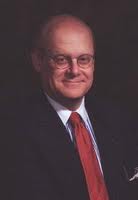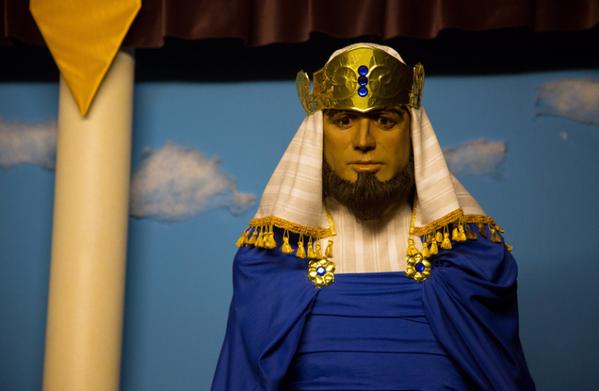"The God of Heaven Will Make Us Prosper" -- Nehemiah 2:1-20
 Sunday, August 30, 2015 at 03:16PM
Sunday, August 30, 2015 at 03:16PM
Living in Light of Two Ages
____________________________
 Sunday, August 30, 2015 at 03:16PM
Sunday, August 30, 2015 at 03:16PM  Sunday, August 30, 2015 at 03:09PM
Sunday, August 30, 2015 at 03:09PM  Faith & Experience
Faith & Experience
This week on the White Horse Inn we are continuing our series on sustainable church discipleship. In this special edition of the White Horse Inn, Michael Horton and Rod Rosenbladt speak before a live audience and discuss the relationship between faith and experience in the Christian life.
What is a legitimate experience of God? Should we look for a feeling of divine presence and overwhelming joy? What happens when we focus more on the experience of faith than the object of faith? Are we more interested in the practical application of Christianity than we are in truly understanding the Christianity that is to be applied? What are the dangers of this kind of approach to the Christian life? Join us this week on the White Horse Inn as we delve into this important topic of faith and experience.
 Thursday, August 27, 2015 at 01:37PM
Thursday, August 27, 2015 at 01:37PM  From Allen Guelzo's recent essay in Did Religion Make the Civil War Worse? in The Atlantic.
From Allen Guelzo's recent essay in Did Religion Make the Civil War Worse? in The Atlantic.
If there is one sober lesson Americans seem to be taking out of the bathos of the Civil War sesquicentennial, it’s the folly of a nation allowing itself to be dragged into the war in the first place. After all, from 1861 to 1865 the nation pledged itself to what amounted to a moral regime change, especially concerning race and slavery—only to realize that it had no practical plan for implementing it. No wonder that two of the most important books emerging from the Sesquicentennial years—by Harvard president Drew Faust, and Yale’s Harry Stout—questioned pretty frankly whether the appalling costs of the Civil War could be justified by its comparatively meager results. No wonder, either, that both of them were written in the shadow of the Iraq War, which was followed by another reconstruction that suffered from the same lack of planning.
What kept the nation feeding an entire generation into the Civil War’s meat grinder, especially if the war’s endgame prospects were so unclear? The answer, in Stout’s version, was American religion. A war which began as a fairly colorless constitutional dispute over secession was transformed by a tidal wave of “millennial nationalism” into a crusade with no off switch. Faust flips the causal equation. If religion did not exactly drive Americans to war, then war drove Americans to religion as the justification for its lethally expensive costs. “The war’s staggering human cost demanded a new sense of national destiny,” wrote Faust, “one designed to ensure that lives had been sacrificed for appropriately lofty ends.” A nation guided by realpolitik knows when to cut its losses. A nation blinded by the moral gleam of a “fiery gospel writ in burnished rows of steel” and charmed by the eloquence of a president with an uncanny knack for making his assessment of political problems sound like the Sermon on the Mount, obeys no such limitations.
Guelzo concludes,
In exposing the shortcomings of religious absolutism, the Civil War made it impossible for religious absolutism to address problems in American life—especially economic and racial ones—where religious absolutism would in fact have done a very large measure of good. Some leaders, Martin Luther King prominent among them, have since invoked Biblical sanction for a political movement, but that has mostly been tolerated by the larger, sympathetic environment of secular liberalism as a harmless eccentricity which can go in one ear and out the other. “Never afterward,” wrote Alfred Kazin of the war, “would Americans North and South feel that they had been living Scripture.” I do not know that Americans have been the better for it.
 Thursday, August 27, 2015 at 10:52AM
Thursday, August 27, 2015 at 10:52AM  P. J. O'Rourke strikes again--a wonderful piece of political satire from which no one emerges unscathed.
P. J. O'Rourke strikes again--a wonderful piece of political satire from which no one emerges unscathed.
Democrats hate your guts.
Democrats need your vote and they’ll do anything—no matter how low and degrading—to get it. They hate you the way a whore hates a john.
All politicians hate people. Politics is a way to gain power over people without justification for having that power. Nothing in the 11,000-year history of politics—going back to the governing elites of Mesopotamia—indicates that politicians are wiser, smarter, kinder, more moral, or better skilled at any craft (aside from politics) than we are.
But political rulers need the acquiescence of the ruled to slake the craving for power. Politicians hate you the way a junkie hates junk.
Politicians gain power by means of empty promises or threats, or both when they’re on their game. Should you vote for people who are good at politics? No. You should vote for Republicans. We’re lousy.
You can read the whole thing here: They Hate Your Guts
 Tuesday, August 25, 2015 at 09:51AM
Tuesday, August 25, 2015 at 09:51AM  The Forty-Sixth in a Series of Sermons on the Gospel of John
The Forty-Sixth in a Series of Sermons on the Gospel of John
Every Jew confessed the famous words of the Shema–“Hear, O Israel: The Lord our God, the Lord is one.” Yet when Jesus began his messianic mission he identified himself as a divine figure (the Son of Man), and in John 8:58 declared himself to be one with YHWH–“Truly, truly, I say to you, before Abraham was, I am.” Although the disciples believed that Jesus was Israel’s Messiah, they had a much harder time understanding how both Jesus and YHWH were the one true God. Jesus even uses the “I am” formula when celebrating the Passover with his disciples, when he tells them “I am the way, and the truth, and the life.” He even goes on to tell them, “I am in the Father and the Father is in me.” Now Jesus will speak of a third divine person, the Helper, who will come to the disciples after Jesus ascends into heaven and returns to the Father’s dwelling, where Jesus is preparing a place for them. It is this “Helper” (the Holy Spirit) who will remain with them after Jesus departs, and it is through his person and work that Jesus will be present with his disciples.
We are in the midst of a series on the Gospel of John, and we are considering the “Upper Room Discourse” in John 13-17, which was given by Jesus immediately before his betrayal, arrest, and crucifixion. Last time we considered the first fourteen verses of John 14, while in this sermon we will consider the balance of the chapter (vv. 15-31), in which Jesus begins to reveal to his disciples the person and work of the Holy Spirit, the third person of the Holy Trinity.
As the Passover celebration begins, Jesus washes his disciples’ feet, and make predictions about Judas (who will betray him) and Peter (who will deny him). Jesus also gives the disciples a new commandment that they love one another. As chapter 14 begins, it is clear that the disciples are troubled by these developments. For one thing, Jesus is obviously burdened by the weight of the ordeal ahead. He has told the disciples that he is about to depart from them, and undergo such great suffering that the disciples can hardly imagine it. To prepare them for their new ministry (founding the church) after his ascension into heaven, Jesus has much to teach the disciples during this their last evening together. But the disciples are having a hard time understanding the things which Jesus is telling them. Their own treasurer (Judas) will betray Jesus? Peter will deny him? Jesus implying that he was about to die, and yet he would see the disciples again? There is much for the disciples to take in, and they are having trouble doing so.
In the first part of chapter 14 (vv. 1-14), Jesus tells the disciples not to be troubled–they must believe in him–that is, trust that Jesus will see them through the ordeal ahead. The reason why they should not be troubled is that even though Jesus is going away, he will prepare a place for them where his Father dwells (in heaven). Jesus will ensure that there is room there for all who believe him–in his Father’s dwelling place are many rooms. When Thomas asks Jesus “Lord, we do not know where you are going. How can we know the way?” Jesus answers him, declaring that “I am the way, and the truth, and the life. No one comes to the Father except through me. If you had known me, you would have known my Father also. From now on you do know him and have seen him.” With unmistakable clarity, Jesus declares himself to be the only way to heaven–he is the true temple of God. At the moment of his death upon the cross, God will tear open the veil in the temple separating the holy place from the most holy place. Jesus is now the way to heaven, and who, through his death and resurrection, will remove the barrier between God and his people (human sin) symbolized by the temple veil which separated God from his people.
The talk of “seeing God” prompts Philip to ask Jesus the same question Moses asked YHWH in Exodus 33. “Lord, show us the Father, and it is enough for us.” Philip’s curiosity has gotten the better of him. God protected Moses from his glory by hiding Moses in the cleft of a rock, but Philip assumes that since the Father is in Jesus, and Jesus is in the Father, Jesus can show Philip what YHWH would not show Moses. Jesus’ answer reveals his divine identity, which has been veiled by human flesh. “Have I been with you so long, and you still do not know me, Philip? Whoever has seen me has seen the Father.”
To read the rest of this sermon, Click Here
 Monday, August 24, 2015 at 09:55AM
Monday, August 24, 2015 at 09:55AM Sunday Morning (August 30): We continue with our series on Ezra-Nehemiah. This coming Lord's Day, we are considering Nehemiah's inspection of Jerusalem (Nehemiah 2). Our Lord's Day worship service begins at 10:30 a.m.
Sunday Afternoon: Rev. Chris Coleman will be conducting our afternoon service, which begins @ 1:15 p.m.
Wednesday Night Bible Study : Will resume in the Fall (TBA)
The Academy: On Hiatus until Fall (TBA)
For More Information on Christ Reformed Church you can always find us here (Christ Reformed Info), or on Facebook (Christ Reformed on Facebook)
 Sunday, August 23, 2015 at 03:06PM
Sunday, August 23, 2015 at 03:06PM  The Message and Mission of the Church
The Message and Mission of the Church
This week on the White Horse Inn we are continuing our series on sustainable church discipleship. In this special conference edition of the White Horse Inn, Michael Horton challenges us to get reacquainted with Christ’s original message and mission.
As churches downplay doctrines like the sovereignty and holiness of God, the message of the gospel becomes warped and distorted. As a result, many think of Jesus more as a best friend or life coach than they do as a divine redeemer who rescues them from sin and hell. To add insult to injury the church has changed the methods of grace given in the Great Commission. Join us this week on the White Horse Inn as we learn more about the message and mission of the church and their interrelationship.
 Wednesday, August 19, 2015 at 11:53AM
Wednesday, August 19, 2015 at 11:53AM 
If you look closely, you might see more than a slight resemblance between King Solomon and John Travolta. That is because there is.
A "Bible Wax Museum" in Mansfield, Ohio, has been cutting costs by purchasing wax figures of celebrities from a now defunct Madame Tussaud’s Museum in Arkansas. Among the wax figures transformed into "Biblical Heros" include Steve McQueen, Tom Cruise (who is the wax "Jesus" about to be baptized by John--see the article for the image), Elizabeth Taylor, Ringo Starr, and Prince Phillip.
Like I say, you cannot make this stuff up. Click Here
(h.t. Larry Johnson)
 Tuesday, August 18, 2015 at 10:31AM
Tuesday, August 18, 2015 at 10:31AM 
The Forty-Fifth in a Series of Sermons on the Gospel of John
As the Upper Room discourse continues to unfold in John 14, Jesus tells his disciples that he is going away, and that he will prepare a place for them. The disciples are confused by Jesus’ words, and several of them have questions for Jesus. Thomas wants to know the way to the place which Jesus is preparing for them in his Father’s house, while Philip wants Jesus to show the remaining disciples the glory of the Father. In answering Thomas’ and Philip’s questions, Jesus utters some of the best known and most profound statements in all the New Testament. For nearly three years, the disciples have traveled with Jesus, witnessed countless miracles, and heard Jesus say things which nice Jewish boys do not say, unless he is God incarnate. In their last evening together, Jesus reveals much new information about the nature of his messianic mission (which is about to end), but he also speaks about the disciples’ future ministry (which is about to begin).
When we left off last time (the closing verses of chapter 13), Jesus is with his disciples in a rented upper room in Jerusalem celebrating the Passover. It is early Thursday evening–the Passover began at sundown. With the joy of Jesus’ triumphal entrance into Jerusalem on Palm Sunday quickly fading because of the gravity of the Passover celebration, the disciples surely sensed that this Passover was going to be different from anything they had ever experienced with Jesus before. Jesus is troubled, and is speaking like a man about to die.
The reason for the somber nature of the evening is that Jesus is preparing his disciples for his departure–he will suffer and die upon a Roman cross the next afternoon, and after being raised from the dead, Jesus will ascend into heaven and return to his Father. Because his long anticipated hour has come, Jesus must now explain to his disciples that he is about to leave them, as well as explain to them why. The disciples stand at the brink of a new age in redemptive history, and in order to understand what is soon to come later that evening and next afternoon, Jesus must teach them about the nature of his messianic mission, explain why it has come to an end, why he must now leave them, and why his departure will be better for them. To do this, Jesus will explain to them the gift of the Holy Spirit. Understandably, his disciples are struggling to understand the significance of Jesus’ words, and it is only in hindsight that the things Jesus tells them during this discourse will finally make sense to them.
Although Jesus is their teacher and Lord, soon after sundown Jesus opened the Passover celebration by washing the feet of his disciples–something never done for servants in the ancient world by someone of Jesus’ authority, since it is the disciples who ordinarily would be washing Jesus’ feet. Jesus told them how this washing with water pointed ahead to a spiritual washing–a washing with the blood he was about to shed for his people upon the cross as Israel’s true and spotless Passover lamb.
But there were other difficult revelations to be made as well. Jesus announced to the twelve that one of them (Judas) would betray him, and that another of them (the leader of the group, and the most exuberant of them all, Peter) would deny evening knowing Jesus. In fact, Peter would do so three times before the rooster crowed (i.e., at first light the next morning). Peter was brave and loyal and could not begin to understand how he would come to do such a thing. The news of a satanically-inspired defection by the group’s treasurer (Judas) was also difficult to understand, so much so that even when Jesus identified Judas as his betrayer when he handed him a piece of bread dipped in sop, the disciples could not get their minds around such an act until Judas showed up with an armed mob later that evening bent upon arresting Jesus so that he might be put to death. Judas had been with them from the beginning, and although they figured out later on that Judas was a thief and a liar, on this night the eleven remaining disciples simply could not understand how one of their own could so such a thing.
To read the rest of this sermon, Click Here